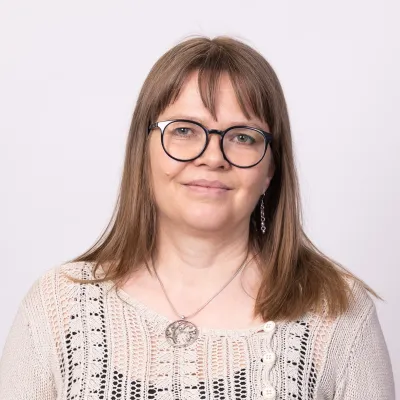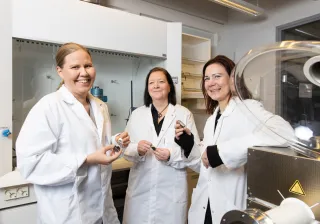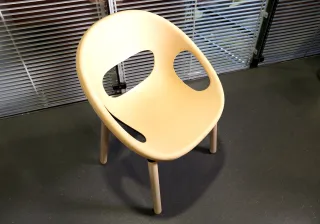Finnish companies and organisations are transforming the textile industry together with research and education institutions in the Telavalue project that was launched in February. Our vision is to resolve the current sustainability and waste problems in the textiles with circular economy and to promote a sustainable textile production in Finland. This can be done via recycled and bio-based materials.
Circular economy would bring new businesses and jobs in the textile sector. The Telavalue project will support the transformation of the textile industry. One of the goals is to combine recycled and new bio based fibres as the foundation of sustainable Finnish textile production.
“New bio-based and recycled material sources and the respective products will help us reduce the load of our lifestyles on the environment. We want to accelerate the development of these new products in Metsä Group and Fortum’s ExpandFibre spear-head ecosystem. The Telavalue project is also a part of it. Telavalue will help us ensure that the new sustainably produced bio-based textile fibres are perfectly integrated in the future circular economy of textiles,” says Katariina Kemppainen, Vice-chair of Metsä Group’s innovation company Metsä Spring, Group R&D, and Programme Manager of ExpandFibre.
The global textile industry is looking for more sustainable replacements for different materials, including the fossil-based polyester and cotton that require plenty of water to produce. The solution is utilising wood-based fibres in textile production.
“Chemistry is integral to developing the desired attributes of cellulose-based fibres. These attributes include strength and absorption power. Chemistry also plays a key role in enhancing the recycling of textiles. The chemistry company Kemira sees excellent opportunities to utilise their skills and expertise in fibre chemistry obtained from the pulp and paper industry in creating new innovations,” explains Satu Ikävalko, Manager R&D of Microbiology and Biotechnology.
The production of Finnish technical textiles has been strong in the last decades, even though the production of clothing and home textiles has declined since the heyday.
“In the Telavalue project, VTT’s role is to develop recycling solutions for these textiles made of high standard, mostly plastic-based, synthetic fibres. VTT has already created processes for recycling plastics in its previous projects. They have been successfully tested in the side-lines of technical textile production. We will continue developing our processes to utilise used, dirty, technical products in composite production as well,” states Senior Scientist, Pirjo Heikkilä, the project's coordinator at VTT.
Turku University of Applied Sciences will support businesses adapting to the circular economy in the Telavalue project. This can be achieved by researching new business models of circular economy, such as sharing services that can resolve problems of textile consumption. LAB University of Applied Sciences will promote the development of sustainable and long-duration textiles in the project.
The Telavalue project continues the line of previous projects of the Telaketju network. They have promoted the creation of a Finnish circular economy of textiles. One of the success stories of the Telaketju network is the circular economy plant for decommissioned textiles that was opened in 2021.
“The long-term Finnish research and development work around the circular economy of textiles has received international recognition. It is important to continue the work now when textiles are a hot topic also on the EU level. We want to do our part in supporting the operations of a network that involves every link of the value chain. It has played an important role in the rapid progress of the circular economy of textiles in Finland in the last few years,” says Satumaija Levón, Chief Advisor at Suomen Tekstiili & Muoti ry.
Telavalue is a Business Finland Co-Innovation project that includes six business projects and a public research project with VTT, LAB University of Applied Sciences and Turku University of Applied Sciences. The public research project is funded by Business Finland together with 17 other businesses and organisations. The project will be active from 1 February 2022 to 31 January 2024.







